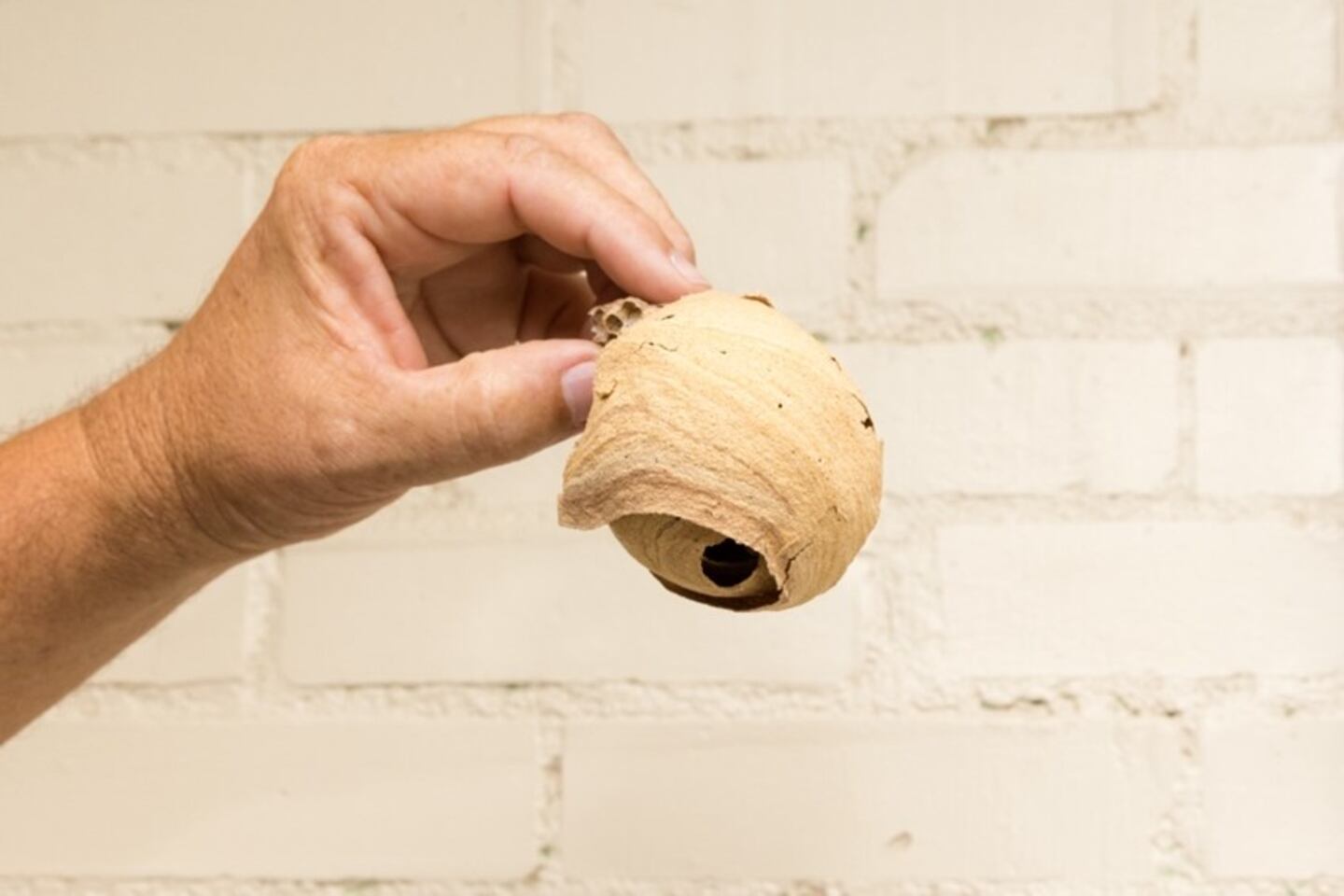ATLANTA — Tyler Harper, Georgia Department of Agriculture Commissioner is encouraging Georgians to report embryo nests to prevent the spread of yellow-legged hornets across the state and prevent them from becoming a threat to the agriculture industry.
The insect is a social wasp species that builds egg-shaped paper nests, often in trees. These nests can increase up to an average of 6,000 workers, Georgia Department of Agriculture officials say.
“We are continuing to ask for the public’s help in our effort to eradicate the Yellow-Legged Hornet from our state,” said Georgia Agriculture Commissioner Tyler J. Harper. “By reporting sightings of embryo nests early, we can stop the queens from spreading and minimize the damage they cause. It’s crucial that we work together to protect our state’s #1 industry—agriculture.”
Georgia Agriculture officials say embryo nests are found in the early spring between March and April. They add that embryo nests “range in size from a ping-pong ball to a tennis ball and are often found in sheltered spots, such as the eaves of buildings.”
The yellow-legged hornet, which is a native to tropical areas of Asia, was spotted in Chatham County in 2024.
The invasive species doesn’t bother humans but could pose a huge threat to the bee population.
Yellow-legged hornets eat honey bees, destroying vital pollinators and causing detrimental effects on the agriculture industry.
Here’s what you should do if you spot a yellow-legged hornet:
- Stay Alert: Look out for embryo nests, which are typically smaller than primary and secondary nests. Embryo nests can be found in trees, shrubs, or other elevated locations.
- Do not approach or attempt to remove it. Instead, take note of its location and appearance.
- Report sightings immediately to the Georgia Department of Agriculture at 404-656-3645.
If You Are Stung:
- Move to a safe area to avoid additional stings.
- Wash the sting site with soap and water.
- Apply a cold pack to reduce swelling.
- Seek medical attention immediately, especially if you experience difficulty breathing, swelling, or other severe symptoms.
- Contact the Georgia Department of Agriculture or call 911.
Georgia Department of Agriculture officials say if you believe that you have seen a yellow-legged hornet in your area, complete this online reporting form.










